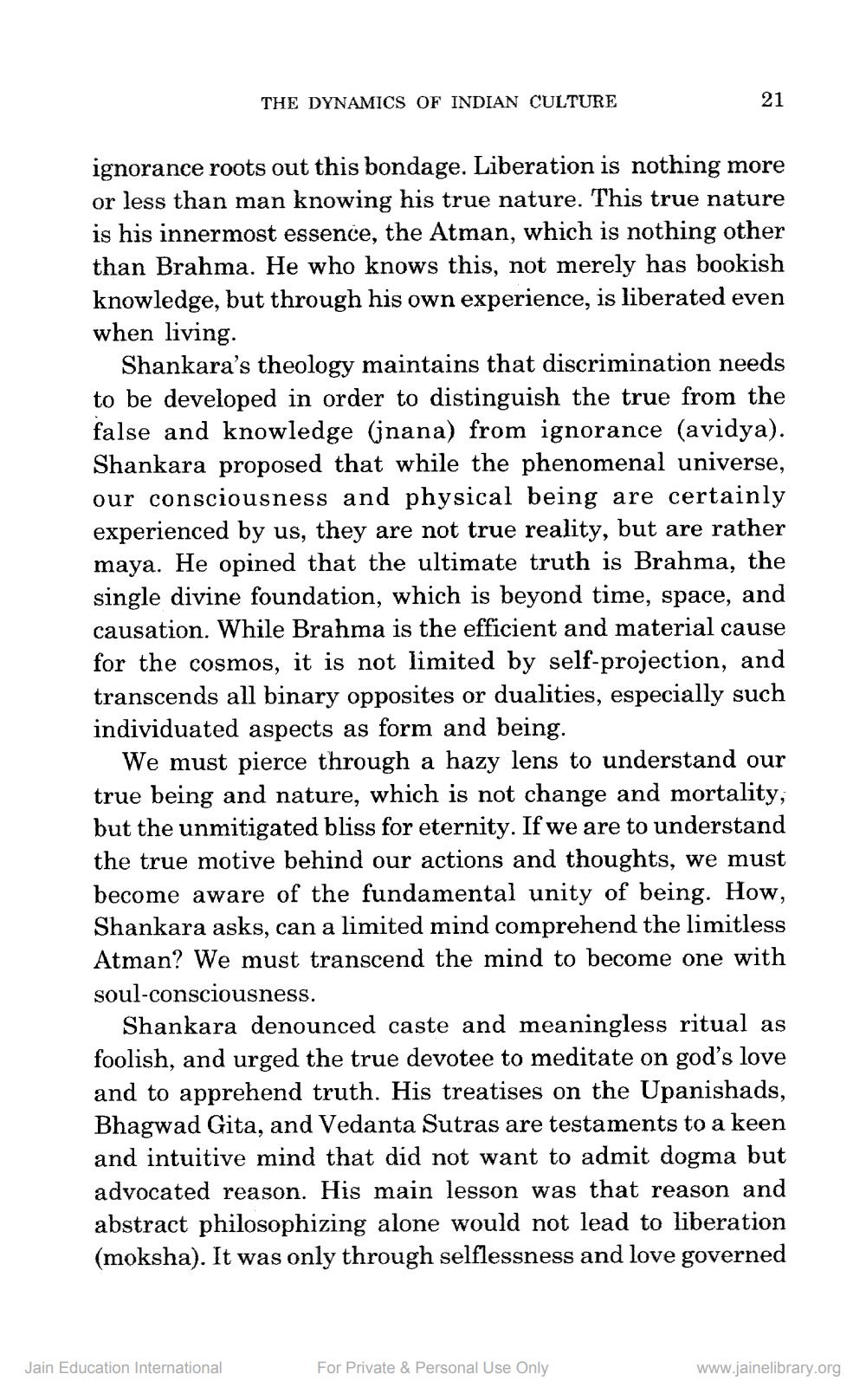________________
THE DYNAMICS OF INDIAN CULTURE
21
ignorance roots out this bondage. Liberation is nothing more or less than man knowing his true nature. This true nature is his innermost essence, the Atman, which is nothing other than Brahma. He who knows this, not merely has bookish knowledge, but through his own experience, is liberated even when living.
Shankara’s theology maintains that discrimination needs to be developed in order to distinguish the true from the false and knowledge (jnana) from ignorance (avidya). Shankara proposed that while the phenomenal universe, our consciousness and physical being are certainly experienced by us, they are not true reality, but are rather maya. He opined that the ultimate truth is Brahma, the single divine foundation, which is beyond time, space, and causation. While Brahma is the efficient and material cause for the cosmos, it is not limited by self-projection, and transcends all binary opposites or dualities, especially such individuated aspects as form and being.
We must pierce through a hazy lens to understand our true being and nature, which is not change and mortality, but the unmitigated bliss for eternity. If we are to understand the true motive behind our actions and thoughts, we must become aware of the fundamental unity of being. How, Shankara asks, can a limited mind comprehend the limitless Atman? We must transcend the mind to become one with soul-consciousness.
Shankara denounced caste and meaningless ritual as foolish, and urged the true devotee to meditate on god's love and to apprehend truth. His treatises on the Upanishads, Bhagwad Gita, and Vedanta Sutras are testaments to a keen and intuitive mind that did not want to admit dogma but advocated reason. His main lesson was that reason and abstract philosophizing alone would not lead to liberation (moksha). It was only through selflessness and love governed
Jain Education International
For Private & Personal Use Only
www.jainelibrary.org




